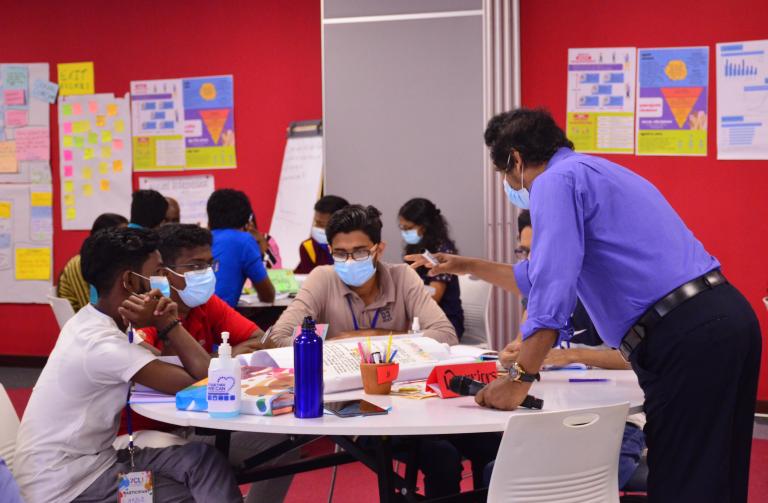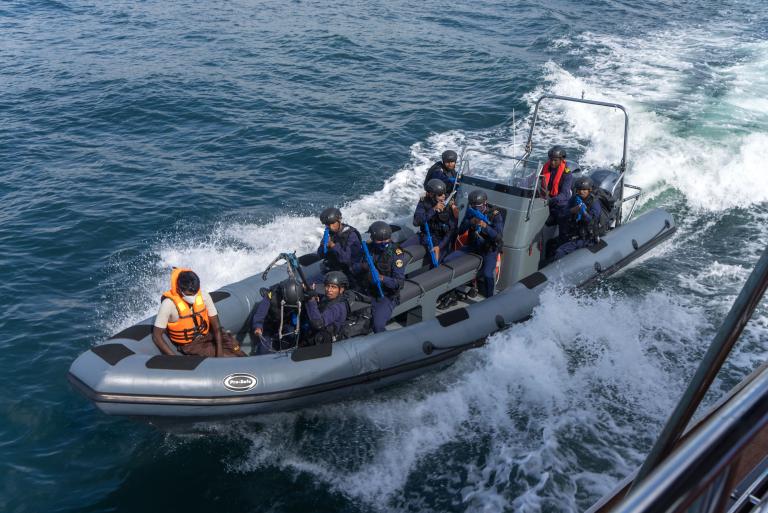
The United Nations supported national partners to promote dealing with the past, social cohesion, and resettlement. This work has a focused on improving community resilience, promoting inclusive social dialogue, and protecting fundamental freedoms and the rule of law. Most of this work has been implemented under the Joint Programme for Peace (JPP) with six agencies working in a joint programming framework.
The Human Rights Office in collaboration with UNOPS supported civil society organisations to sustain and strengthen their presence and work on the ground, particularly in relation human rights, victim and community support and protection, legal aid, and advocacy on key human rights concerns affecting communities. The Office also supported research on key substantive areas such as land rights, which could impact on social cohesion.
The UN supported community resilience and institutional architecture through the work of IOM, assisting the Office for Reparations (OR) with development and implementation of the National Reparations Policies and Guidelines and the National Action Plan, plus the implementation of an Information Management System. Through UN support, the OR delivered trainings for livelihood support and case managers on mental health and psychosocial services in the North. UNDP also supported the inclusion of resettled persons through delivery of public services in the Tamil language in the Northern Province, while UNHCR assisted authorities in this region with IT equipment to enhance work on housing, land and property rights, education, and civil documentation benefitting the reintegration of refugee returnees. UNICEF supported the Ministry of Education in updating the National Action Plan on Education for Social Cohesion and piloted social cohesion learning modules across 100 schools. UN Women supported the drafting of a national action plan on Women, Peace and Security, while convening multiparty dialogues and capacity-building sessions to strengthen women’s leadership and peacebuilding across the country. UNFPA support for women and girls subjected to sexual and gender-based violence (SGBV) resulted in the first national shelter assessment. Civil society and journalists were supported by UNDP with capacity development for countering hate speech and promoting social cohesion messaging. For its part, ILO supported the peacebuilding process through helping to build trust and confidence, scaling up ongoing livelihood support to some 900 resettled households in partnership with the private sector.
Striving for inclusive social dialogue, the UN, with UNFPA in the lead, facilitated platforms for women and youth-led networks to discuss matters relating to interreligious and interethnic harmony, as well as gender concerns such as sexual and reproductive health and rights. UN Women and UNOPS coordinated community-level dialogues and training on women’s leadership and mediation, and strengthened platforms for local women leaders and political actors of different ethno-religious communities to address shared environmental concerns. This work engaged over 3,000 women community members, fostering economic empowerment and innovation within communities.
Further work engaged local women leaders with the women parliamentarians’ caucus on key areas of intervention such as SGBV, while the Ministry of National Language and its successor Ministry of Public Administration were supported in implementing the Official Language Policy and developing language audit tools in collaboration with the Official Language Commission of Sri Lanka.
In terms of protecting fundamental freedoms and the rule of law, UNDP in partnership with the Ministry of Justice and the Legal Aid Commission of Sri Lanka supported over 28,500 SGBV clients with legal aid services and continues to strengthen legal aid service provision for prisoners.
Further, UNFPA helped address gaps in shelters for women with disabilities, while UNDP supported the first budget speech in parliament with sign language interpretation, reaching the 4 per cent of the population with hearing impairment. UNODC, for its part, developed an action plan for improving the management of high-risk prisoners and mitigating COVID-19 risks in prisons as part of wider UN support for implementing the Nelson Mandela Rules.
Under the JPP early initiatives were commenced by UNICEF and UNDP to introduce counter hate speech programmes into the youth space and national curricula. Disinformation, hate and dangerous speech are significant issues of risk for youth across Sri Lanka. At end of 2021 UN PBF commenced support to a UNDP-UNICEF pilot countering hate speech programme 2022-23 in partnership with the Media Ministry and Ministry of Education.
Supporting a Safer Sri Lanka
The UN’s efforts in the monitoring and prevention of crime and illicit substance use are delivered with the understanding that there can be no development without peace, and vice versa. In an environment characterized by rising economic challenges and opportunities for organised crime there are significant threats to peace and development.

UNODC worked with Sri Lanka’s Attorney General’s Department and defense lawyers from the Bar Association of Sri Lanka to deliver over a dozen trainings providing simulated investigation, prosecution, and trial exercises on the use of the internet for terrorist activities and on the appropriate handling of electronic evidence. The UN also worked with Sri Lanka’s Department of Prisons to develop an action plan on managing high-risk detainees, and a guide on detecting and preventing radicalisation in prison settings. This assistance comes as part of broader capacity building in dynamic security for 350 Department of Prisons officers. The UN also supported Sri Lanka’s Department of Community-Based Corrections to apply alternatives to imprisonment where appropriate, training 300 officers across all nine provinces in Sri Lanka.
Dealing with maritime crime, UNODC assisted with the training of 250 maritime law enforcement officers on Visit, Board, Search, and Seizure protocols. These courses provided theoretical and practical exercises on countering maritime crime, trafficking of illicit substances, and the detection of explosive devices and their components. UNODC also engaged with the Department of Fisheries and Aquatic Resources, the Marine Environment Protection Authority, and marine law enforcement authorities on tackling crimes related to environmental pollution and climate change, in addition to providing support in response to the MV X-Press Pearl disaster.
Work to prevent and treat substance abuse—including narcotic drug abuse—was boosted with the UN providing technical assistance on the national drug demand reduction programmes. UNODC conducted a comprehensive review of existing drug legislation and policy, and developed a gender-sensitive drug control action plan in line with human rights and international standards. Furthermore, a UNODC assessment actively promoted the development of a gender-responsive drug policy and the introduction of drug use prevention and treatment programmes in Sri Lanka.
UNODC’s advocacy promoted awareness among the general public regarding the risks and consequences of Trafficking in Persons (TIP). Capacity-building activities in this area focused on enabling Sri Lankan police to identify, investigate, and refer human trafficking crimes appropriately, and promoted collaboration between police and communities to identify, refer, and report TIP cases. The UN also provided technical assistance to expand use of strategies against criminal networks, encouraging law enforcement and judicial officers to promote measures beyond interdiction activities in a way that fosters greater transnational cooperation.

